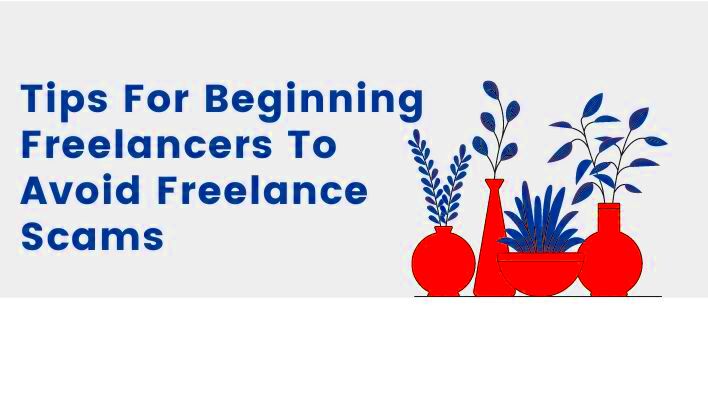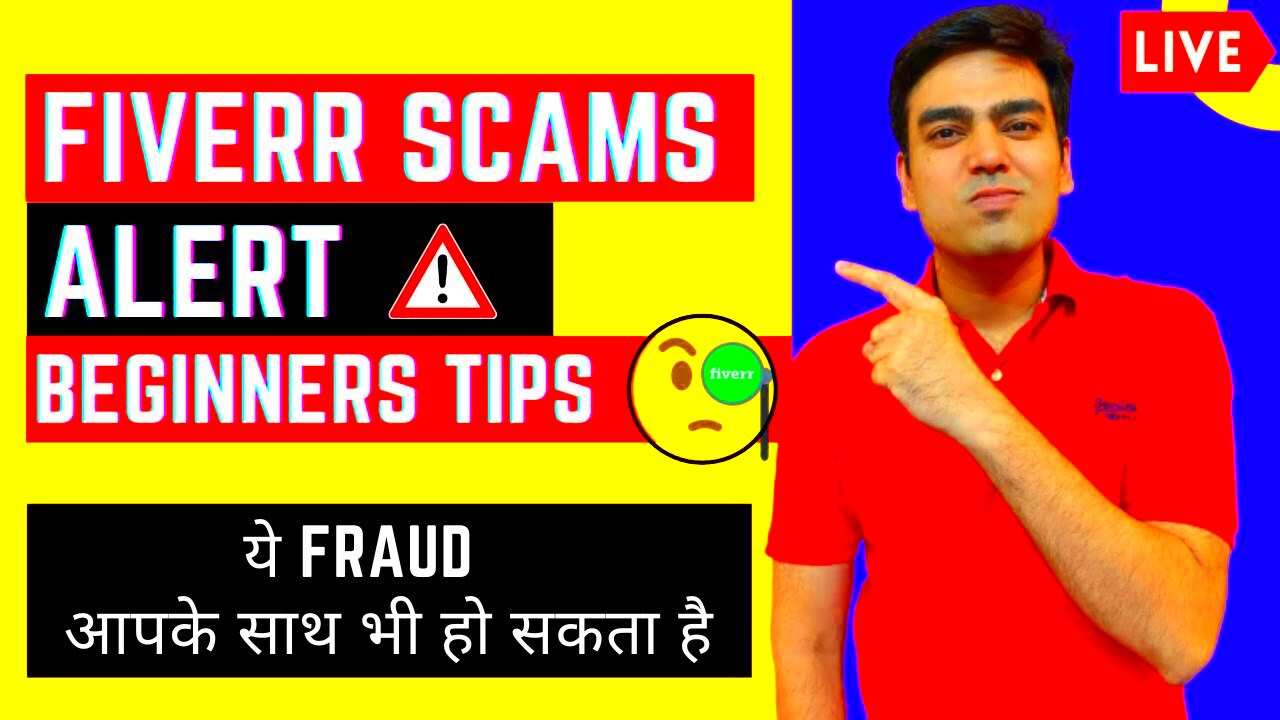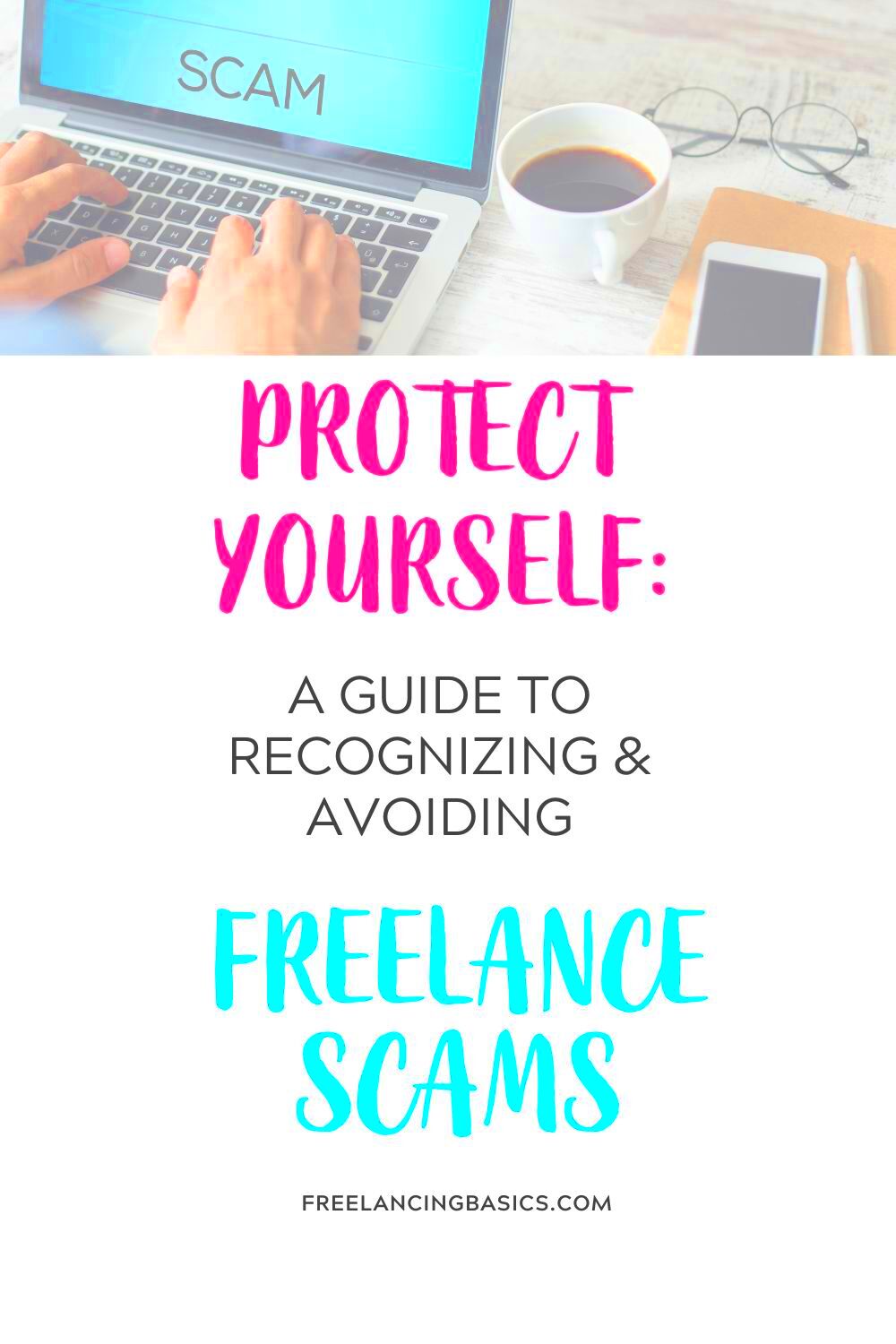Freelancing offers great opportunities, but it also comes with its share of risks. Many freelancers face scams that can lead to financial losses and emotional stress. It’s crucial to understand the types of scams that are prevalent in the freelancing world. Here are some common scams to watch out for:
- Fake Job Offers: Scammers often post job listings that seem too good to be true, aiming to collect your personal information or money.
- Advance Fee Scams: In this scam, a client asks for a fee upfront for materials or a deposit, which they never intend to pay back.
- Phishing Scams: These involve fake emails or messages that look like they come from legitimate companies, trying to steal your login credentials.
- Overpayment Scams: A client sends a check for more than the agreed amount, asking you to refund the difference. The original check later bounces.
Being aware of these scams can help you avoid becoming a victim. Always research potential clients and verify their legitimacy before taking any action.
Recognizing Red Flags in Job Offers

When browsing job offers, it’s important to know the warning signs that indicate a potential scam. Here are some red flags to keep an eye on:
- Vague Job Descriptions: If the job listing lacks details about the tasks or expectations, it could be a scam.
- Unprofessional Communication: Be cautious of clients who use poor grammar, spelling mistakes, or have unprofessional email addresses.
- Too Good to Be True Payments: If the pay rate is much higher than industry standards for the work required, it’s likely a scam.
- Urgency: Scammers often pressure you to make quick decisions, claiming the offer is only available for a short time.
Taking the time to evaluate job offers can save you from potential scams. Trust your instincts and do thorough research.
Also Read This: Image Shape Shift: Changing the Shape of an Image in Canva with Ease
Protecting Your Personal Information

Keeping your personal information safe is crucial as a freelancer. Scammers may try to obtain sensitive details to exploit you. Here are some tips to protect yourself:
- Limit Personal Information: Only provide the necessary details when it’s essential. Avoid sharing sensitive data like your social security number or banking information unless absolutely required.
- Use Strong Passwords: Create complex passwords for your freelance accounts and change them regularly to enhance security.
- Enable Two-Factor Authentication: Whenever possible, use two-factor authentication on your accounts to add an extra layer of security.
- Be Wary of Public Wi-Fi: Avoid accessing sensitive accounts over public Wi-Fi networks, as they can be insecure.
By taking these precautions, you can significantly reduce the risk of your personal information falling into the wrong hands.
Also Read This: How to Remove Revision Request on Fiverr
Safe Payment Methods for Freelancers

When freelancing, ensuring you get paid securely is essential. Choosing the right payment method can protect you from scams and ensure a smooth transaction. Here are some safe payment methods that freelancers often use:
- PayPal: A widely accepted option, PayPal provides buyer and seller protection, making it a secure choice for freelancers. Just make sure to use the "Goods and Services" option to benefit from these protections.
- Escrow Services: Platforms like Upwork and Fiverr use escrow systems, which hold the funds until the work is completed to the client's satisfaction. This method protects both parties.
- Direct Bank Transfers: While generally safe, ensure you have an established relationship with the client before sharing your bank details. Use this method only if you trust the client completely.
- Cryptocurrency: Some freelancers are opting for cryptocurrencies like Bitcoin. While they can offer anonymity, be cautious as their value can be volatile.
Always avoid methods that require you to send money before receiving payment or those that seem unconventional. Stay informed about the pros and cons of each payment method to keep your finances secure.
Also Read This: What Should I Write in Fiverr Requirements?
Building Trust with Clients

Building trust with clients is key to a successful freelance career. Strong relationships lead to repeat business and referrals. Here are some effective ways to establish trust:
- Communicate Clearly: Maintain open lines of communication. Keep clients updated on your progress and respond to their inquiries promptly.
- Set Realistic Expectations: Be honest about what you can deliver and when. Avoid overpromising to keep clients happy.
- Provide Quality Work: Always aim to meet or exceed the client's expectations. Delivering high-quality work consistently builds credibility.
- Request Feedback: After completing a project, ask for feedback. This shows that you value the client’s opinion and are committed to improvement.
Trust takes time to build, but by being professional and reliable, you’ll create lasting relationships that benefit your freelance career.
Also Read This: How to Use Promo Codes for Fiverr Users
Reporting Scams and Fraudulent Activity
If you encounter a scam or fraudulent activity, it’s important to take action. Reporting these incidents not only protects you but also helps others avoid similar situations. Here’s how you can report scams effectively:
- Gather Evidence: Keep all relevant information, including emails, messages, and screenshots. Document everything that relates to the scam.
- Contact the Platform: If the scam occurred on a freelancing platform like Fiverr or Upwork, report the user immediately through their reporting tools.
- File a Complaint: In the U.S., you can report scams to the Federal Trade Commission (FTC) via their website. If you're in another country, check your local consumer protection agency.
- Alert Your Network: Share your experience with fellow freelancers through forums or social media to raise awareness about the scam.
Taking action not only helps you but contributes to making the freelancing community safer for everyone. Remember, you’re not alone, and many resources are available to support you.
Also Read This: How to Increase Impressions on Fiverr
Staying Informed About Industry Trends
In the fast-paced world of freelancing, staying informed about industry trends is crucial. The freelance landscape is constantly evolving, with new tools, technologies, and best practices emerging regularly. Here are some effective ways to keep yourself updated:
- Follow Industry Leaders: Subscribe to blogs, podcasts, or social media channels of industry experts. They often share valuable insights and predictions about future trends.
- Join Freelancing Communities: Engage with other freelancers through forums, groups, or local meetups. Sharing experiences and knowledge can help you learn about trends firsthand.
- Attend Webinars and Conferences: Participate in online webinars or in-person events to gain knowledge from speakers and network with peers. These events often cover emerging trends and technologies.
- Utilize Online Courses: Platforms like Udemy and Coursera offer courses on new skills and industry developments. Investing in learning can give you a competitive edge.
By staying informed, you can adapt your services to meet market demands, making you more appealing to potential clients. Remember, knowledge is power in the freelance world!
Also Read This: How to Market Your Service on Fiverr
Frequently Asked Questions
As a freelancer, you may have questions about various aspects of your work. Here are some frequently asked questions along with their answers to help you navigate your freelance journey:
- How do I find clients? Use platforms like Fiverr or Upwork, network through social media, and ask for referrals from past clients.
- What should I include in my portfolio? Showcase your best work, include client testimonials, and highlight projects relevant to the jobs you want.
- How do I set my rates? Research market rates for your services, consider your experience level, and adjust your pricing based on demand and complexity.
- What if I encounter a difficult client? Maintain professionalism, set clear boundaries, and don’t hesitate to end the contract if necessary.
These FAQs can help clarify common concerns, allowing you to focus on what you do best—delivering quality work!
Conclusion
Freelancing can be a rewarding career, but it comes with its challenges. By understanding common scams, recognizing red flags, and using safe payment methods, you can protect yourself and your work. Building trust with clients and staying informed about industry trends will enhance your reputation and career prospects. Remember to report any scams you encounter to help others stay safe. Freelancing requires vigilance, but with the right knowledge and practices, you can enjoy a successful and fulfilling freelance journey.




